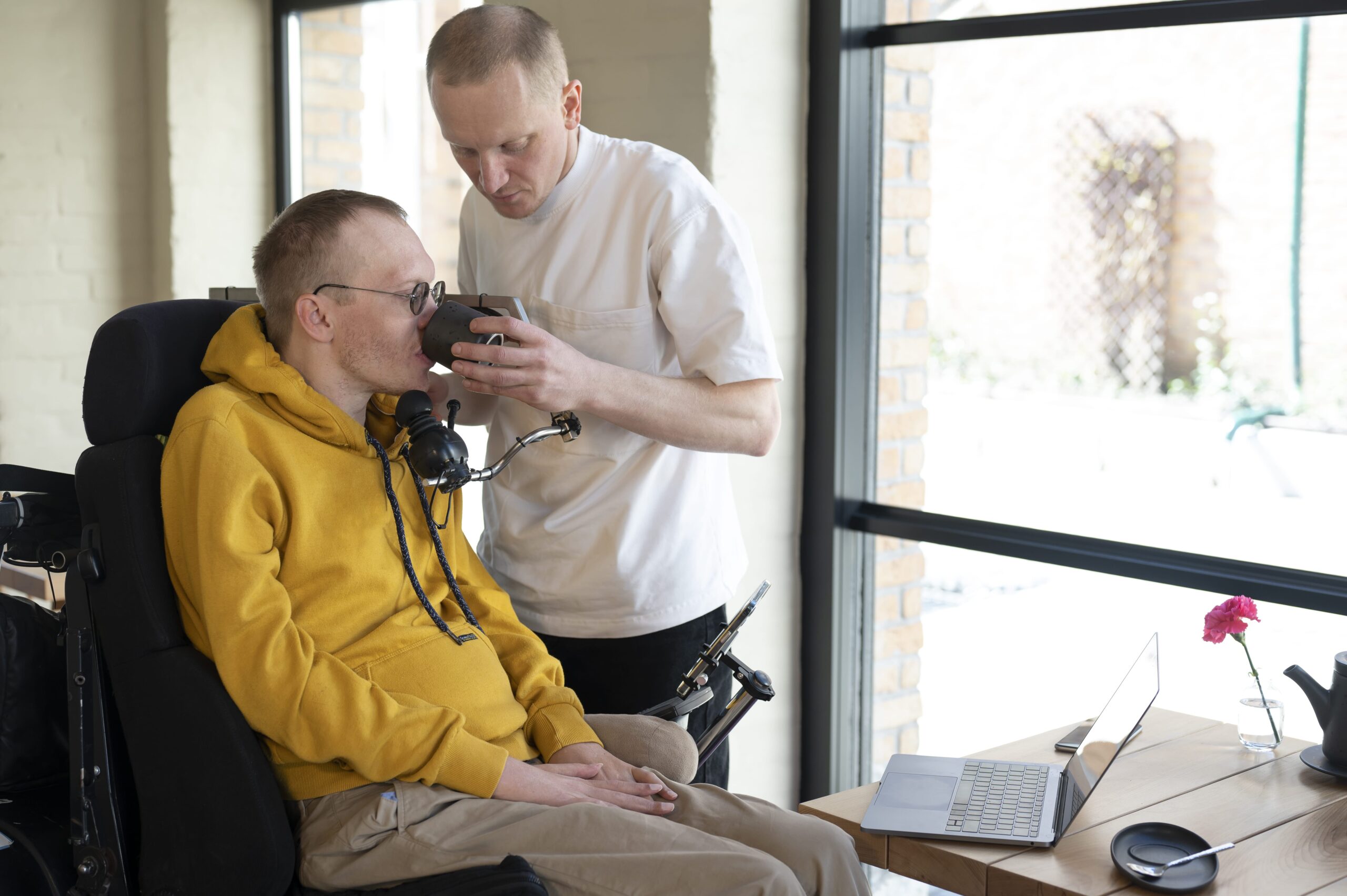Enabling individuals with disabilities and the elderly to live independently through active support has become a cornerstone in modern aged and disability care frameworks, including the NDIS disability care program. Active support not only empowers individuals to lead a fulfilling life but also significantly aids caregivers and families in managing the day-to-day circumstances of their loved ones.
In this blog, we delve deeper into the concept of active support, its application in aged care settings, and the manifold benefits it brings to both the recipients and the caregivers.
What is Active Support?
Active support is a customized program that is designed to assist people and focuses on ensuring they are participating and engaging in all areas of life. Active support is practised to allow people with mental and physical disabilities to participate in their everyday lives.
Active support achieves a reach of outlook that is intended to provide enough help to permit people to engage successfully in meaningful activities that enable them to receive more control over their lives, develop more independence, and become more valued members of their community despite the level of mental or physical disability or their condition.
This active support service focuses on the knowledge of staff, which enables engagement and the capacity of the service to offer accessible opportunities in a structured and predictable fashion.
Experience The Power of Active Support
Interested in active care for your loved ones? Let’s discuss it together.
What is Active Support in Aged Care?
Active support in aged care is a custom person-centred care approach that helps disabled and aged persons to engage in different programs.
Active support is basic to the way comprehensive support service offers person-centred and effective support. Assisting a person that centres on ensuring they are participating in all spaces.
Seniors and the disabled may need active support to lead life to interact with other people. With active support, people take part in every activity, no matter what their level of disability.
In this way, active support provides consistent service, improves confidence and increases independence. Your elderly adult may need active support services in their aging.
This guide will help you to understand active support services, the benefits of active support, and the principles of active support.
Why Active Support services are important for seniors?
If a person is not able to do normal activities independently, they need support to live. Active support is designed to make sure that people who want support have the chance to participate fully and engage in their lives and receive the right level of support as required.
Benefits of Active Support
Here are some of the amazing benefits of active support for seniors and disabled people when they are under active support services in an in-home aged care agency.
- Active support helps seniors to maintain their independence and have choices and control over life while getting constant assistance.
- Active support rapidly improves or helps to maintain the health and well-being of seniors and disabled people.
- Active support offers good accompaniment to seniors that would surely decrease the pressure and stress that seniors feel.
- Active support allows seniors to spend quality time with friends or family, which makes the relationship good in their community.
- Active support allows seniors to have a new experience and develop or learn new skills.
- Active support is provided individually to the seniors so they receive equal importance, service, and attention.
What are the Basic Principles of Active Support in Aged Care
The engagement of active support will be worth it because it opens up many opportunities to do other things and interact with other people. The outcome of engagement is valuable. Rather than helping or doing chores for them, support providers work with them so they can feel good accompanying and taking part in daily activities despite their level of disability.
This approach helps to provide more control, boost confidence, and increase the independence of seniors or disabled Persons. Some main factors foster engagement in relationships and activities:
- Don’t leave any chance: Active support service providers perform household activities such as shopping, housework, or gardening, which allow a person enough time to visit relatives or friends, play games, and learn to support people. This participates seniors or disabled in active support all over the day.
- Don’t try too hard: Disable or senior people are not able to do any work entirely at one attempt. So breaking activities and relationships down into a series of steps and identifying those parts the person can do for themselves allows people to participate or engage in ways that work for them.
- The ideal support as per individual needs: Serving the right support at the right time. If the service providers give too much support, then the disabled or seniors will be over-supported and hamper their independence. If they serve little support, then they will fail.
- Increasing choice and control: Seeking a chance for the person to express their wish is for relationships and activities.
Discover the Potential of Active Support
Experience the transformative influence of active involvement in aged care. Get in touch to explore further.
Active Care Support Application in Aged Care
In aged care settings, active support manifests through a range of services and interventions designed to promote independence and well-being among the elderly. These may include:
- Personalized Care Plans: Developing care plans that are tailored to meet the unique needs and preferences of each individual.
- Assistive Technologies: Leveraging modern technologies to aid in mobility, communication, and other essential aspects of daily living.
- Community Engagement: Encouraging participation in community activities to foster social connections and prevent isolation.
- Skill Development: Offering programs that help in honing existing skills or developing new ones, thereby promoting a sense of accomplishment and self-worth.

Upgrade your Aged Parent’s care today with Active Support Services
Active support helps to make a significant difference not only to the people who are getting support but also to the caregivers involved in this program. Active support services providers observe closely or may inspect to know the actual condition of the person and to provide them with customized service and care that meets their needs and expectations.
Like other services, active support doesn’t work for them but works with them and gives them a chance to experience it. It means active support gives a disabled person a chance to have good accompaniment and become a partner, ensuring they want their goals and outcomes.
Active support is highly recommended by doctors for the disabled and seniors to meet their goals and provide daily needed support in a comprehensive manner.
If you need customized active support for your loved ones, then contact Wise Choice in Home Care Get by calling on tel:02 8704 6271.
Play an Active Part in Aged Care
Understand how active support can revolutionise aged care. Contact us.
How often should the care plan be updated?
Care plans are an ever-changing thing. The range of development depends significantly on the nature of care receivers’ cognitive and physical health and the range of assistance they need. For example, someone with an increasing condition like chronic obstructive pulmonary disease (COPD) or dementia will probably require more frequent assessments than a person with equable or more stable health problems.
As a point of recommendation, health plans need home health agencies to review individuals’ Medicare minimum once every 2 months. In a healthcare-certified nursing home, health assessments and proper care plan updates must be made at least once every 90 days.
Both these examples concentrate on patients with fairly complicated medical conditions and care needs, but attention to detail is important, even for those elderly who are still fairly healthy and independent.
For more information, contact us! We’d love to hear from you.
How can Wise Choice help you with your care plan?
If you’d like to find out more about how a wise choice in-home care agency can help you effectively manage your care plans and care pathways, then please give us a call at 0287046271 or drop us an email at info@wisechoiceihc.com.au our team of experts is always happy to help.



